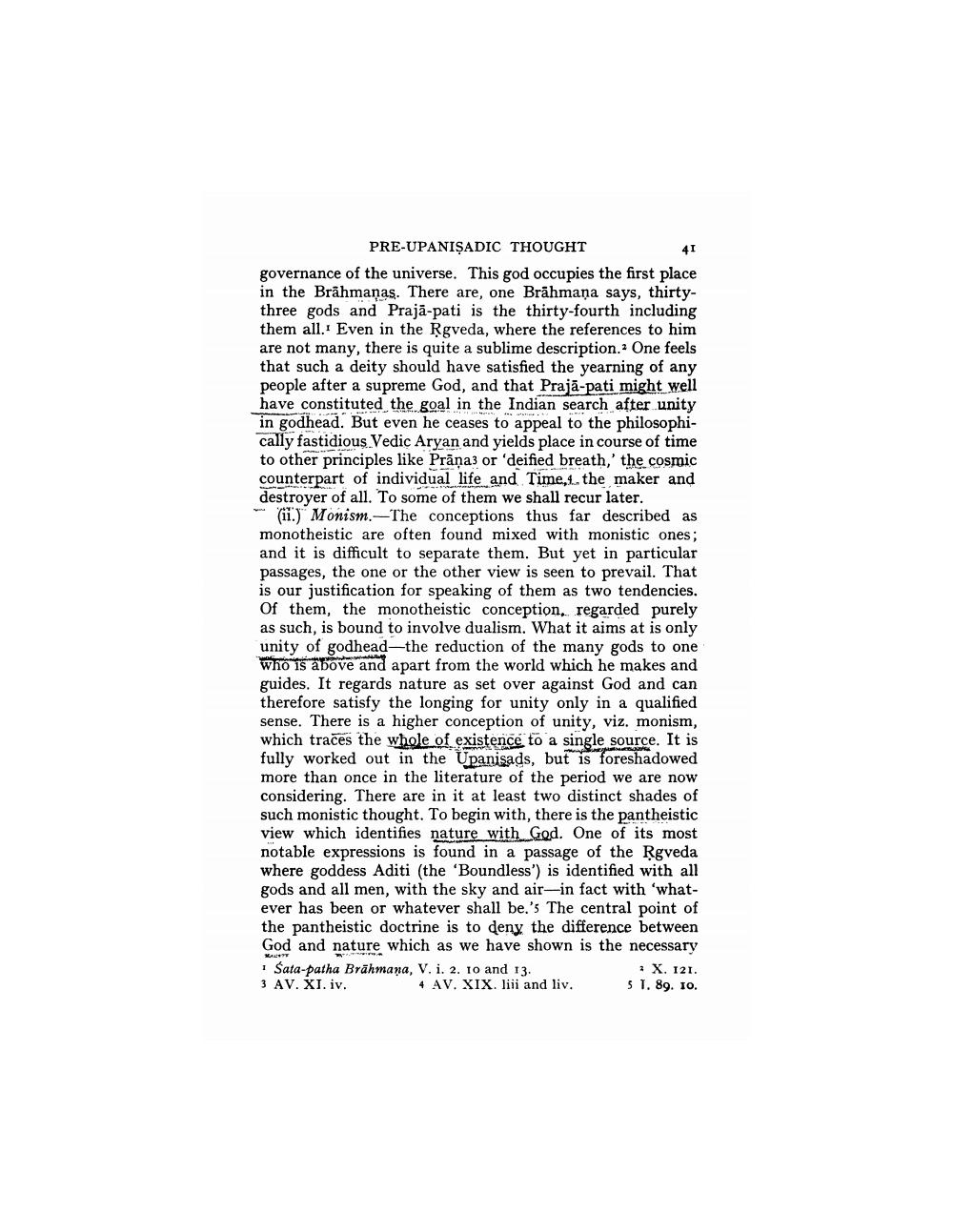________________
PRE-UPANIŞADIC THOUGHT governance of the universe. This god occupies the first place in the Brāhmaṇas. There are, one Brāhmaṇa says, thirtythree gods and Prajā-pati is the thirty-fourth including them all. Even in the Rgveda, where the references to him are not many, there is quite a sublime description. One feels that such a deity should have satisfied the yearning of any people after a supreme God, and that Prajā-pati might well have constituted the goal in the Indian search after unity in godhead. But even he ceases to appeal to the philosophically fastidious Vedic Aryan and yields place in course of time to other principles like Prāna3 or 'deified breath,' the cosmic counterpart of individual life and Time, the maker and destroyer of all. To some of them we shall recur later. * (ii.) Monism.-The conceptions thus far described as monotheistic are often found mixed with monistic ones; and it is difficult to separate them. But yet in particular passages, the one or the other view is seen to prevail. That is our justification for speaking of them as two tendencies. Of them, the monotheistic conception. regarded purely as such, is bound to involve dualism. What it aims at is only unity of godhead—the reduction of the many gods to one Who is above and apart from the world which he makes and guides. It regards nature as set over against God and can therefore satisfy the longing for unity only in a qualified sense. There is a higher conception of unity, viz. monism, which traces the whole of existence to a single source. It is fully worked out in the Upanisads, but is foreshadowed more than once in the literature of the period we are now considering. There are in it at least two distinct shades of such monistic thought. To begin with, there is the pantheistic view which identifies nature with God. One of its most notable expressions is found in a passage of the Rgveda where goddess Aditi (the 'Boundless') is identified with all gods and all men, with the sky and air-in fact with 'whatever has been or whatever shall be.'s The central point of the pantheistic doctrine is to deny the difference between God and nature which as we have shown is the necessary Sata-patha Brāhmana, V. i. 2. 10 and 13.
IX. 121. 3 AV. XI. iv.
4 AV. XIX. liii and liv. 5 1. 89. 1O.




